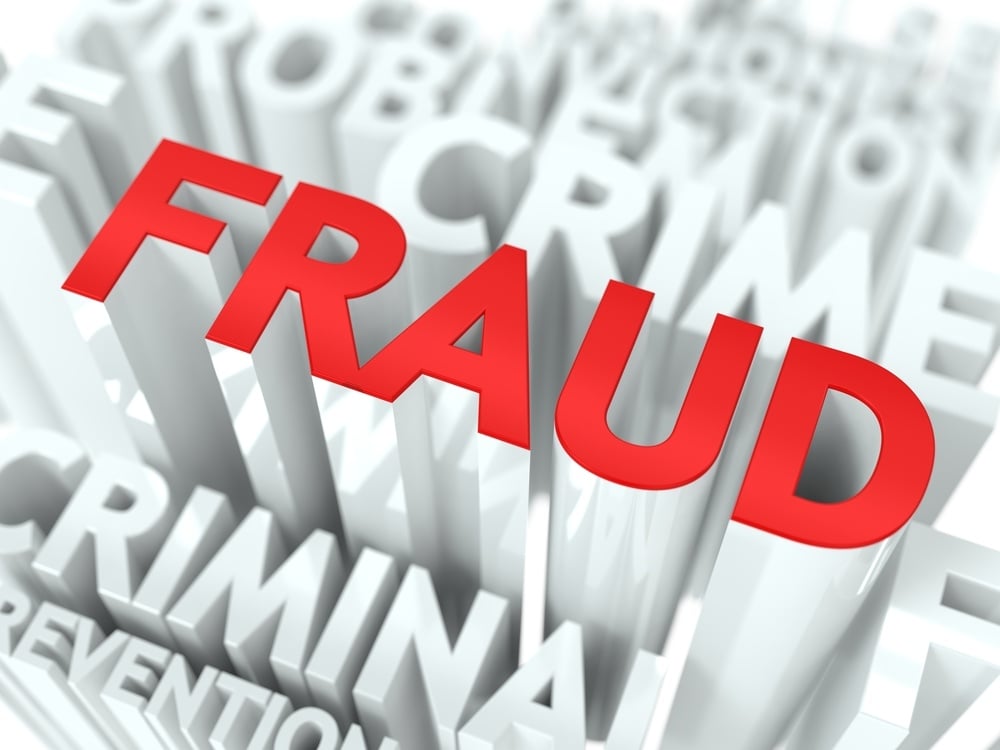Holiday Checklist for Small Businesses
The holiday season is often the most wonderful time of the year—for small businesses. It's a time when savvy business owners do more than put up...

The holiday season is a time of joy and celebration for people of all ages. Unfortunately, it also marks a peak period when cybercriminals target businesses. From phony emails and credit card fraud to fake gift cards and invoice scams, holiday fraud can take many forms during the holidays.
Fraudsters know that business owners and their employees are busy trying to finish the year strong, and as a result, they see an opportunity to exploit the festive rush. Understanding the rise of holiday fraud is crucial for businesses aiming to protect their operations. This Huddle Business Capital blog article discusses six common types of holiday fraud to watch for and what you can do to prevent them from impacting your company.
This fraudulent practice involves manipulating business owners and employees into revealing sensitive information, such as passwords, credit card numbers, or other business details. Phishing comes in emails, instant messages, or websites that appear legitimate but are designed to mislead and exploit unsuspecting victims.
If you or your staff encounter such communication, refrain from engaging with the content or providing any requested information. Instead, promptly report these incidents to your IT manager for further investigation. They can analyze the situation and determine the appropriate action to protect your systems and data.
Payment fraud is a type of financial fraud that spikes during the holidays and comes in several forms. Cybercriminals use stolen payment information (credit card numbers and personal information) to make purchases, usually online. Check fraud is another type of payment fraud. Cybercriminals create fake checks, edit/alter stolen checks, and use them fraudulently to obtain money.
Next is wire transfer fraud. With this type of payment fraud, bad actors try to access a business's bank account with the hope of transferring money into their account. This action is often executed swiftly, allowing the cybercriminals to withdraw the money almost immediately and evade detection.
Payment fraud can affect businesses in countless industries, but companies in the retail, e-commerce, and hospitality (food, beverage, travel, and lodging) sectors are at higher risk. To mitigate payment fraud at your business, you will need to equip your website with robust payment processing systems and advanced encryption and security technology, including fraud detection software. Moreover, you must regularly monitor your business's transactions and alert your bank if you see unusual patterns or activity from a suspicious geographic location.
Invoice fraud can occur throughout the year but, like other scams, can increase during the busy holiday season. So, you and your employees, particularly those in your accounting department, must know the risks and warning signs. Fraudsters pose as legitimate vendors or suppliers and send fake invoices to businesses like yours, hoping the requested payment will be made without question. Because the fake invoices look authentic, they can trick unsuspecting recipients into thinking they are legitimate.
To protect your business from invoice fraud, maintain an updated list of vendors and suppliers and implement strict invoice verification protocols. Carefully review all invoice details, including the invoice amount, sender name and ID, and receipt method, and ensure that these details match the information you have on record. By comparing each invoice against a receipt, contact, or purchase order, you can reduce the chances of your business becoming a victim of invoice fraud.
According to Retail Touchpoints®, E-commerce sales in the 2025 holiday season rose 7.4% year-over-year (YoY), as consumers prefer online shopping for quick purchases and price comparisons.1 While millions of online shoppers are buying gifts online, cybercriminals are hard at work trying to hack websites and compromise their security. Website fraud can lead to significant financial losses and damage your brand’s reputation, but you can lower these risks with the right strategies.
For starters, invest in website security software (anti-malware and anti-spyware) that offers real-time monitoring and alerts. This technology can help detect suspicious activities early on and prevent fraudulent transactions. Additionally, ensure that your website has an SSL certificate (HTTPS encryption) to protect sensitive customer data from being intercepted by cyber thieves. Lastly, keep your company's website login information and password under lock and key so they cannot be compromised.
With this scheme, fraudsters send businesses phony notifications about package deliveries, claiming there is a delay due to incomplete shipping information or payment preferences. The notifications can arrive in email or text format and claim to be from a legitimate shipping service such as United Parcel Service (UPS) or the United States Postal Service (USPS).
However, fake package delivery scams involve malicious links that, when clicked, may ask you to provide personal or business information and payment. These are red flags to avoid at all costs, so ignore them and block the recipient. It is also worth noting that spammy links might put malware or spyware onto computers or mobile devices.
Many businesses increasingly rely on electronic signature solutions like Docusign® to enhance efficiency. However, this convenience comes with risks, particularly bogus account document scams that can severely impact businesses. Cybercriminals send emails to companies that contain links to fake account documents, hoping to trick the recipients into clicking the link, downloading spam-filled attachments, and providing sensitive business information.
During the hectic holiday season, businesses must be more vigilant than ever against a surge in fraudulent activities. Understanding the common types of business fraud that target companies during this time can significantly minimize risks and protect your bottom line.
If your business requires fast funding to invest in hardware and software to help deter online fraud, Huddle Business Capital is the perfect teammate. We work with a network of top-tier lenders offering same-day funding to lease or finance these technologies. We also structure short-term working capital loans that can be used to cover the cost of fraud prevention investments and other operational expenses.
1. https://www.retailtouchpoints.com/features/news-briefs/2025-holiday-spending-rose-4-fueled-by-ecommerce-sales-growth-above-7
Huddle Business Capital is not affiliated with nor endorses Retail Touchpoints®, United Parcel Service (UPS), the United States Postal Service (USPS), or Docusign®. This Huddle Business Capital blog article is purely educational and contains general information and opinions; it is not intended to provide advice or recommendations of any kind.

The holiday season is often the most wonderful time of the year—for small businesses. It's a time when savvy business owners do more than put up...

During the holiday season, millions of Americans will be busy searching for the perfect gifts for their friends and loved ones. This time of year...

As December rolls in, the festive spirit blankets the nation, signaling the arrival of the holiday season. For small businesses across various...